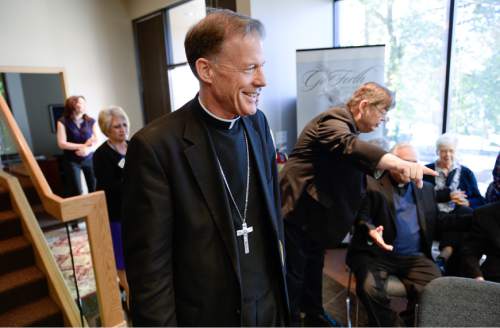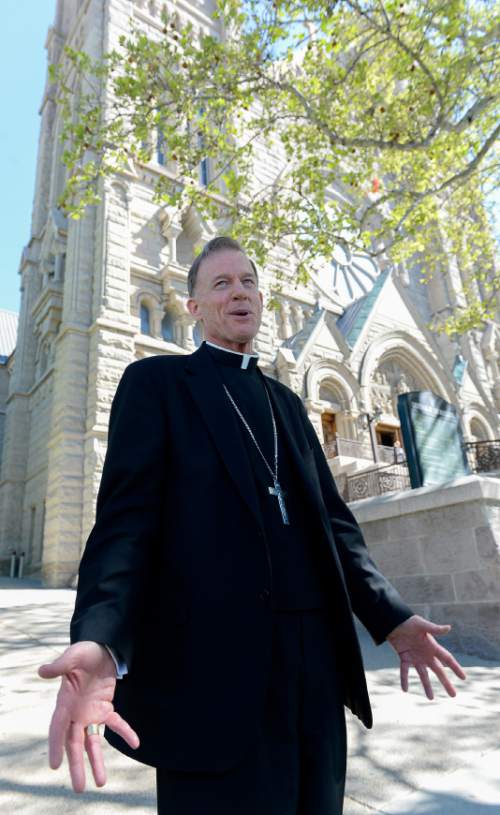This is an archived article that was published on sltrib.com in 2015, and information in the article may be outdated. It is provided only for personal research purposes and may not be reprinted.
Before politicians can enact immigration reform, Americans likely need to reform themselves — and see undocumented immigrants not as "illegals" but as brothers and sisters, Catholic Bishop John C. Wester said Tuesday.
"Reform has to begin with me," Wester told the Utah League of Women Voters in a speech arranged weeks before his appointment this week as archbishop of Santa Fe, N.M.
The leader of Utah's 300,000 Catholics — and an outspoken proponent of immigration reform — said those who want more understanding in life should be more understanding in the immigration debate. And those who want others to show them respect and dignity should show that for immigrants.
Many undocumented immigrants have told him they are treated like animals or insects by some Utahns who see themselves as good Christians.
But these people are not "insects or waves of pestilence crossing our borders. They are human beings," Wester said. "They are fleeing very difficult situations," with some escaping "in many cases what would be certain death" because of gangs and violence in their home countries.
He urged more respectful language in debates, including not using the word "illegals," which he said is a way to ridicule people. People seeking to address the problem should ask, "Am I willing to listen intently to people, with the idea not to prove that I am right, but with the idea to find a solution."
Wester also called for attacking the root causes of undocumented immigration. "Why are people drowning in the Mediterranean by the hundreds? Why would people do that? It doesn't make sense. ... What are the socioeconomic causes?"
He added, "Our country has to look at these root causes, and be part of the solution, be willing to engage other countries so we will be able to stem the tide."
People should put a human face on immigration, and listen to immigrants' stories, he said. "That makes all the difference."
He told of a strong immigration opponent who came to know an undocumented immigrant, and told him, "She's a beautiful person. I love her." He responded, "Well, she's undocumented." The opponent thought and said, "Oh. Well, it's OK."
To show how looking at people closely can change views, he told about driving behind a slow car recently — and the motorist who in turn was following Wester was agitated. So Wester pulled over to let the angry driver pass him.
That driver was about to make an obscene gesture at him, when he noticed Wester's priest collar and converted the gesture into a nice wave with a smile.
"I thought to myself, 'Why would looking at my collar change his attitude?' " Wester said. "I need to look at how I treat people. Do I treat people for who they are?"
Wester said he knows that is difficult. In fact, whenever he speaks nationally on the topic, he comes home to plenty of emails from fellow Catholics "inviting me to leave the Catholic Church."
He urges more understanding and compromise.
"The legislation that is either all enforcement or all humane provisions is not going to work. I think there has to be a blend of enforcement and humane provisions, a compromise," he said. "We have to bring people toward the middle."





